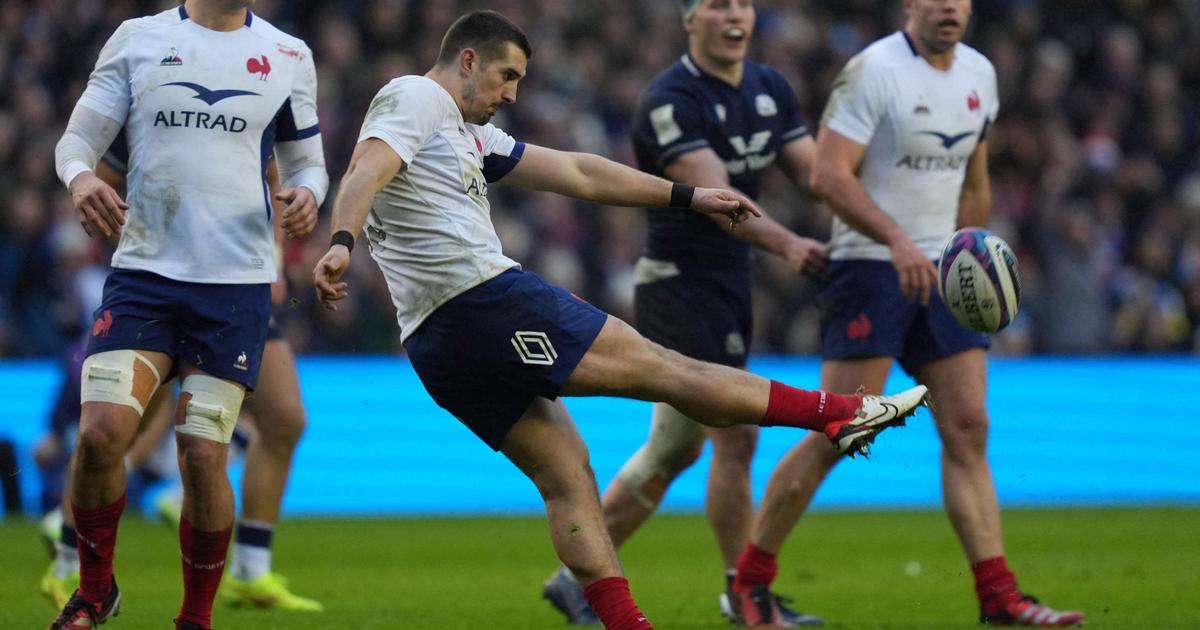Game sequences pushed to the absurd.
During the last Scotland-France, the two camps - Finn Russell on one side and Matthieu Jalibert or Thomas Ramos on the other - chained, for long minutes, exchanges of kicks from their own 22m with, in the middle of the pitch, forwards frozen like mummies.
The reason ?
The two groups exploited what is now known as “the Dupont law”.
Little reminder.
Articles of World Rugby regulations 10.4.c and 10.7, perfectly studied by the Blues scrum-half, set two requirements.
First, players in front of the kicker will be considered offside and penalized if they
"interfere with the play."
Nothing unusual, it's the age-old rule on kicks.
It is the second rule which created lunar sequences of play: the players located in the middle of the exchange between the two scorers are put back into play if they remain motionless more than ten meters from the ball carrier before he performs another kick, a pass or runs five meters with the ball.
Rule 10.7 will simply be deleted
From then on, and this is the perverse aspect of this “Dupont law”, the players in the middle of the field (mainly the forwards who no longer exhaust themselves going back and forth to no longer be offside) remain immobile. and, at the same time, the kicker takes great care not to advance five meters to put them back into play.
“France has decided to adopt this tactic of long kicks which is a scourge for the game, but it did not put us under pressure,”
lamented Scottish coach Gregor Townsend after the setback against the Blues.
Rugby being a sport whose rules are constantly evolving, tests will take place during the next Super Rugby Pacific to combat these ridiculous exchanges of blows.
“We want to create a game that is exciting for our fans and enjoyable for our players.
This is partly due to seeing our players run with the ball rather than exchanging multiple kicks in a battle for territory
,” said Kevin Malloy, president of the southern hemisphere competition. .
We are listening to our fans and with the full support of New Zealand Rugby, Rugby Australia and our coaches, we have responded with a small change that we believe could make a big difference."
“We don’t think this is the show our fans want to see”
Rule 10.7 will simply be removed, meaning that
“defenders will remain offside until put into play by a teammate coming behind the kicker, or by the kicker himself.”
As was the case before.
“Lately, fans have been vocal about teams exploiting a loophole that allowed large numbers of players to stand still while kicks went over their heads in what some call the 'kick tennis" (or ping-pong rugby),
continues Kevin Malloy
.
We don't think this is the spectacle our fans want to see at Super Rugby Pacific.
We want to give teams the opportunity to counter-attack with the ball in hand and we are confident that this change in the law will encourage this trend and encourage exciting, attacking rugby.”
It now remains to be seen whether this change in the rules will be generalized to all of world rugby.
That would be beneficial.

